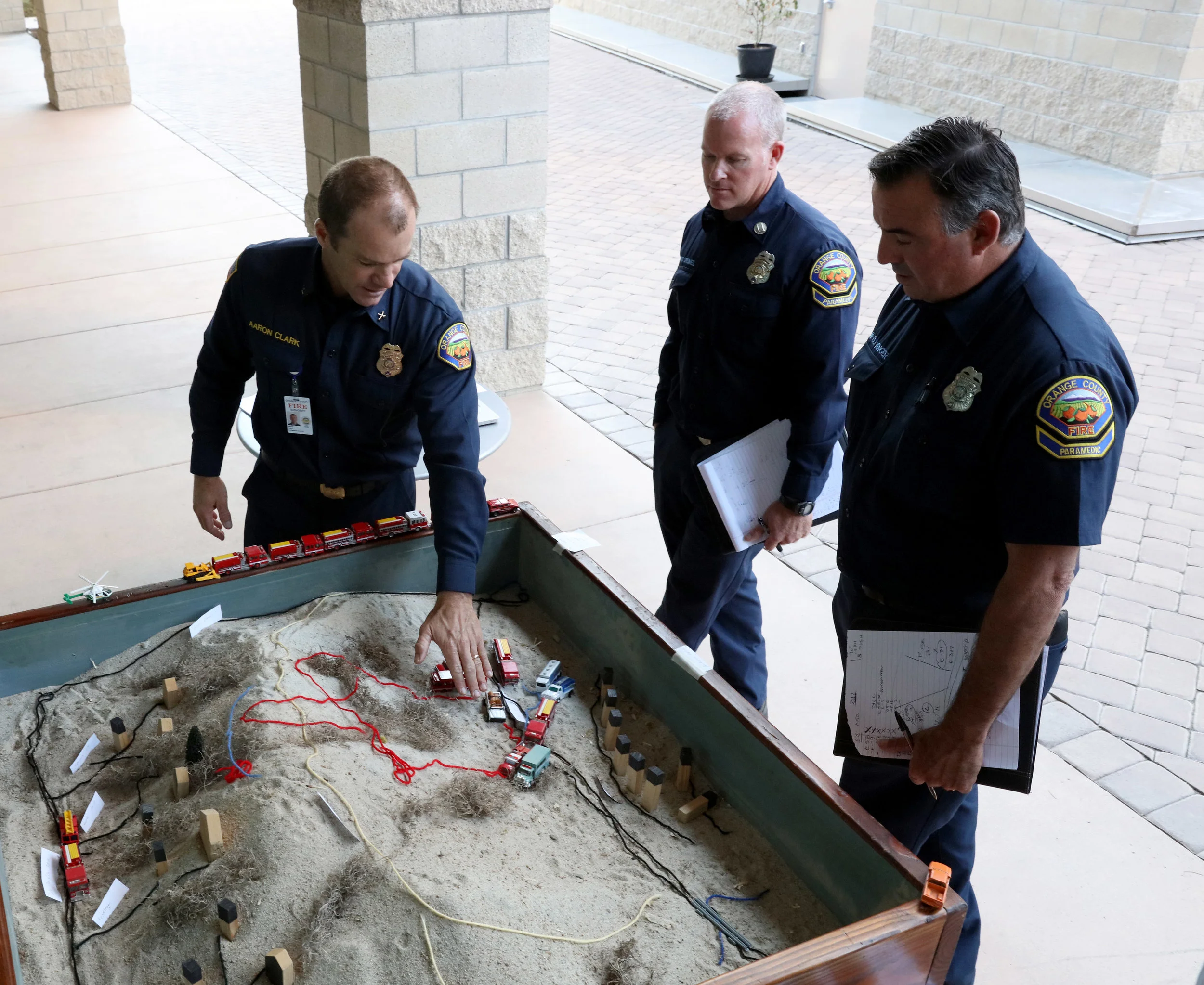
RESPONSIBILITIES
Responsibility to the public
Operationally ready:
The crew is well trained, knows their roles, and ready to be operationally effective.
The apparatus, equipment, and systems are response ready.
Ensure the crew is mentally and physically healthy for the job.
Prioritizing the public needs before our own.
Knowing the first due area: the hazards, the buildings, the businesses, and the issues.
Responsibility to the crew
“You’re here for your crew, you’re here to open doors for other people. Propping others up is the most gratifying part of the job.”
Open communicator- ensure crew understands your expectations.
Safety is paramount.
Keeping a pulse on the crew's mental and physical health.
Fostering and developing a positive crew relationship.
Guiding and building the crew culture. The fire captain sets the tone.
Actively involving the crew in decision making where appropriate (planning the day- where to go/where to eat, inspection workload management, etc.)
Giving honest and specific crew feedback, growing your crew where needed.
Seeking out and accept feedback from the crew.
Ensuring the crew knows their fire captain has their best interest in mind.
Developing the crew members; knowing their goals and ensuring they have what they need to achieve them.
Protecting and educating the crew on their rights.
responsibility to the OCFA
Protecting the OCFA's reputation- having a solid base knowledge of the SOPs and GOs to ensure the right thing for the right reasons. Exercise sound judgement in times when we operate in the gray.
Proactively build relationships with the community (people and businesses) and manage public perception.
The FC represents the organization to the crew- fire captains are responsible for ensuring their crews are up to date on necessary information and getting answers to their questions.
Day-to-day management of OCFA assets (fire station, equipment, etc.)
Incident management responsibility
Operates as the Incident Commander
Ensures public and crew safety.
Stabilizes the incident.
Conserves property.
Protects the environment.
Ensuring proper strategies are employed to meet overall incident objectives.
After incident care (public education, customer service, 9-1-1 use education, etc.)
Challenges

administrative duties
The position requires strong administrative skills (software, processes, relationships, etc.) which can be difficult to learn. Fire captains must be familiar with administrative processes, rules, regulations, SOPs, GOs, and the MOU.
from task to big picture
Stepping back from the tasks and knowing when to intervene, when to guide, and when to allow the freedom for the crew to make decisions, make mistakes, and learn.
from buddy to boss
The fire captain is like a parental figure—they care for their crews and want what is best for them. Sometimes that means boundaries, other times it's clearing the barriers for opportunities and development.
“Being a captain is like being a parent. You’re a coach, cheerleader, mentor, someone to listen, and a disciplinarian. If you work hard at it, even when you discipline, they will still respect you.”
“My crew knows I try hard to make it good for them. They don’t want me to be disappointed, so they work hard to be great.”
ownership
Own the decisions and responsibility-- it can't be, "HR is going to be upset" or "The Chief says..." Develop a culture where the crew is following you because the captain is taking leadership.
"When successful onscene at an incident, it's because of the crew. When not successful, it's often because of the fire captain."
Decision making
Fire captains must know the protocols and have sound judgement to make decisions.
organizational focus
Concentration on building up the crew. Shift from vocalizing personal opinions to choosing your words, building up the organization, and getting crews moving in a constructive direction.
Crew health
Constantly evaluating crew health—physical, mental, and culture. Being proactive in stopping issues before they become bigger and providing guidance and resources.
PREPARE

“When I became a fire captain I had to switch my concentration to building up the crew-- shift from vocalizing personal opinions to choosing my words, building up the organization, and get my crew moving in a constructive direction.”
for the job
for the recruitment
study material
fc specialty opportunities















